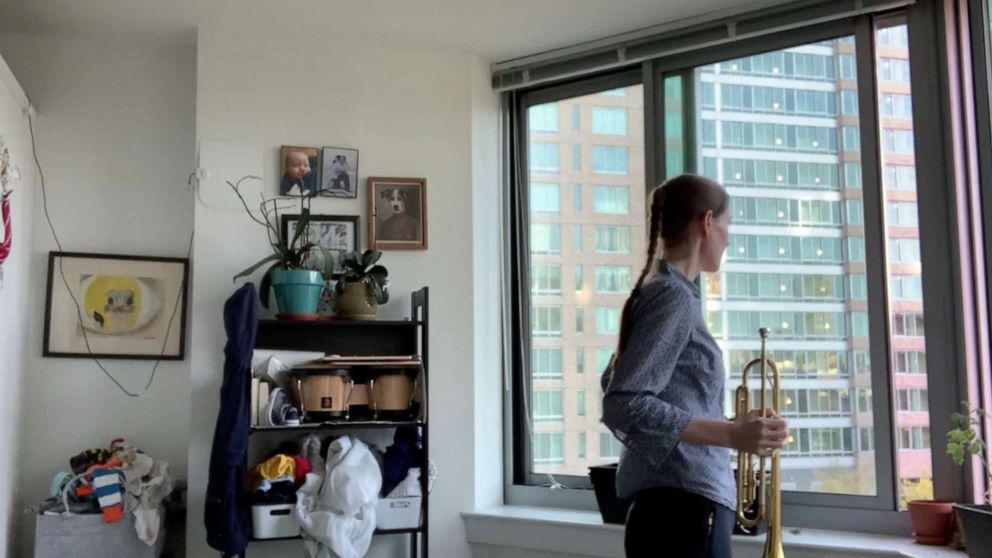Veterinarian, a COVID-19 survivor, on trying to care for pets, her staff and herself
At 12 years old, Erin Kulick looked on in wonder as she watched a cow receive surgery for a prolapsed uterus after giving birth to a calf. It was her first day volunteering at a mixed animal practice in Bedford, Virginia.
As she gazed at the gory scene, she smiled. In that moment, she knew she wanted to be a veterinarian.
Dr. Kulick, now 36 years old, works at Long Island City Veterinary Center in Queens, New York, where she works in general practice and sees mostly small animals.
Due to the COVID-19 pandemic, veterinarians in New York City are only seeing essential cases. Kulick said that instead of having animals and clients in the lobby of the veterinary office, she is having clients meet staff at the front door so that they can bring their pet in. Despite the changes in their operations, they have been very busy.
“We're getting people that haven't come to the vet for a couple years, all of a sudden decide to come back because they're home and I think they're realizing they want to invest in that animal again,” she told ABC News.
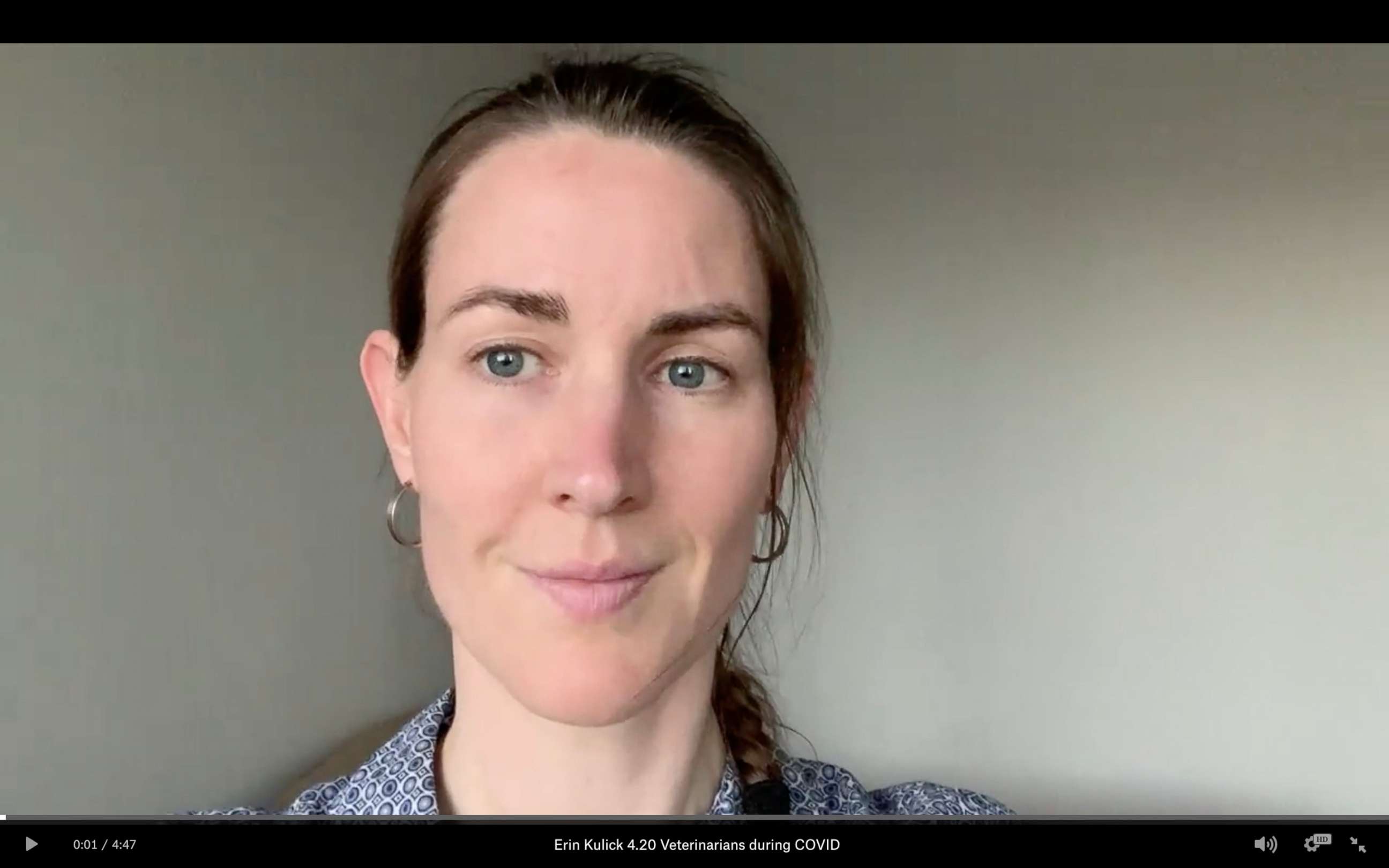
Kulick said she has seen more visits for foreign bodies, which occur when pets consume items that cannot easily pass through their gastrointestinal tract.
“Accidents are still happening,” she said. “People are home more. They're seeing their animals and they're seeing problems.”
In the midst of this crisis, pet euthanasia procedures have presented a unique challenge for pet owners and veterinarians, who have had to figure out compassionate and safe ways to administer them.
“A lot of people do need a hug during that and it's really hard to watch someone from a distance after you've let their pet go and not being able to physically comfort them. But it's even harder, I think, for them if they can't have their entire family there during it,” she said.
On May 13, Kulick and her team performed a C-section on a French bulldog for a client who didn’t have the money for the operation. Kulick said she was thankful for the opportunity “to be able to just have life.”
“We worked with my boss, my manager, to give him as steep of a discount as we could and ... basically used that as a morale booster for all of us, because everybody loves coming in and taking care of puppies in a C-section,” she said.
The staff at the veterinary center have had a difficult few months. Some of them, including Kulick, contracted the coronavirus, which resulted in the center being short-staffed at times.
At the end of March, Kulick’s 1-year-old baby came down with a cough. The next day, Kulick had a cough and diarrhea. When Kulick started feeling sick, she was concerned about how it would affect the coworkers on her team.
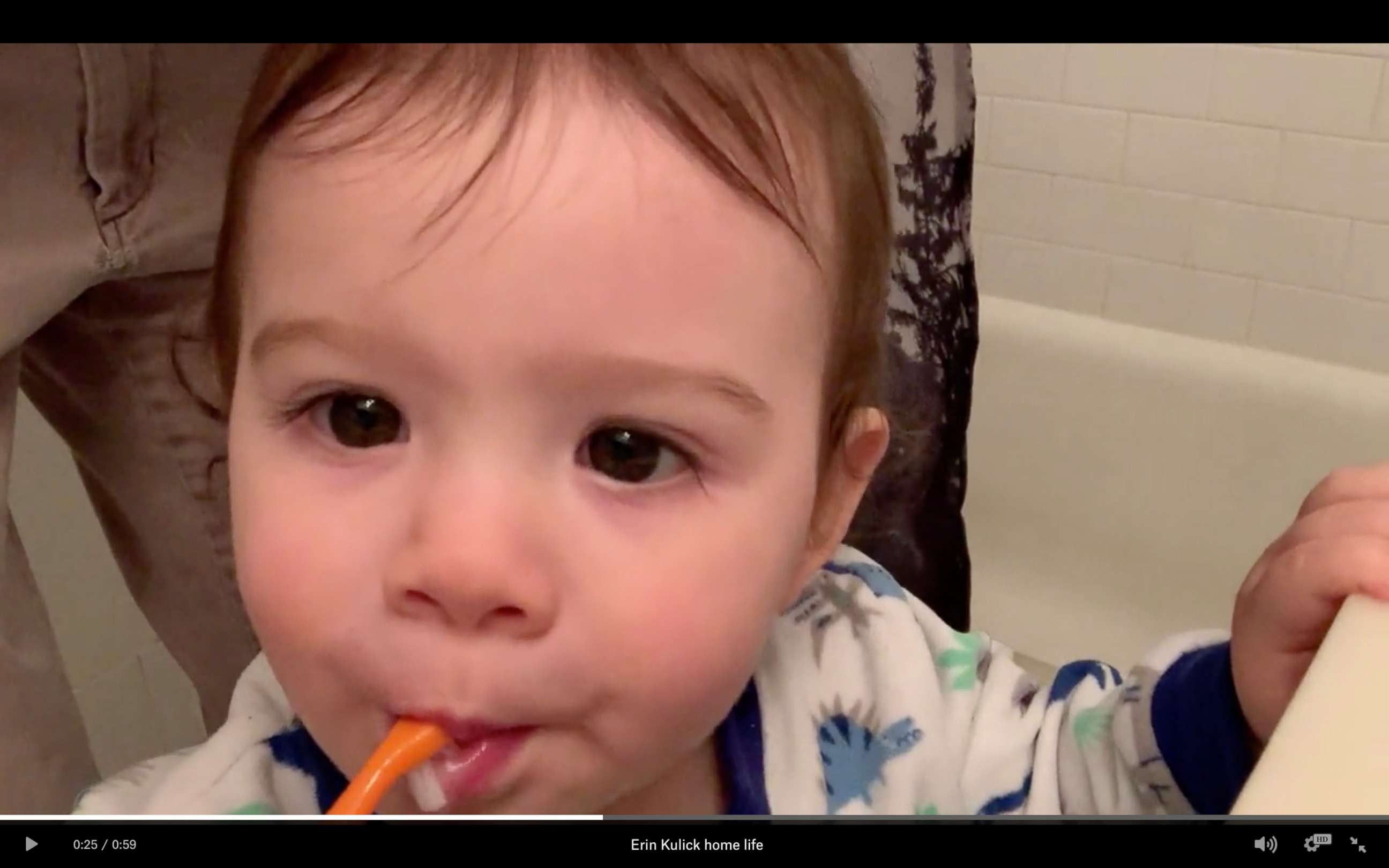
“If someone on that team got sick, you're out for a week, at least,” she said. “I've got a cushion. But my techs, they live paycheck to paycheck, and because I'm sick they're not gonna get paid for at least a week. This sucks.”
That night, she developed a fever, and her concern for her own health grew.
“I did a remote doctor appointment the following day, and he said he diagnosed me with COVID, but he said to stay home, quarantine myself, only go in if I had shortness of breath,” she said. “The following day ... I had shortness of breath. I was trying to read an email to my husband and I couldn't get more than a couple of words out.”
Kulick went to urgent care, but when her oxygen saturation levels came back at an appropriate level, she went home and used an albuterol inhaler to help her breathe. When Kulick eventually took a COVID-19 antibody test after recovering, she tested positive.
“I would say COVID is like no other illness I've had because it does make you question your mortality,” she said.
While staying home to recover, Kulick spent time caring for her child. She said that, despite her previous doubts, she realized that she is in fact a good parent.
“I always felt myself an inferior parent before this because my husband is just so good with kids,” she said. “I'm very grateful for all that extra work of having a kid to help me through this one.”
One strange side effect she experienced was a lost sense of smell. As a veterinarian and mother of an infant, she notices some benefits -- like not being able to smell soiled diapers or the particularly foul smells that arise when treating her animal patients. A couple of weeks after she had been sick, she was drinking whiskey for communion for her “queer-accepting, everything-accepting church.” As she took a sip, she could smell the whiskey again for the first time in weeks.
In audio diaries she recorded, Kulick talks about how the coronavirus has directly impacted her and her community, and how she has continued to perform essential veterinary procedures in the midst of a pandemic. Her personal story can be heard in this week’s episode of the ABC News podcast “The Essentials: Inside the Curve.”
In addition to her work as a veterinarian, Kulick plays music in a queer orchestra in the Chelsea neighborhood of Manhattan called the Queer Urban Orchestra. Her husband, a professional musician who she met in college through playing music together, encouraged her to join the orchestra when she moved to New York City 10 years ago.
“I joined as a straight member and ally and then found that I am queer as well,” she said. “Coming from a Southern Baptist upbringing in Virginia, that was kind of a revelation for me. That's part of why I love New York so much.”
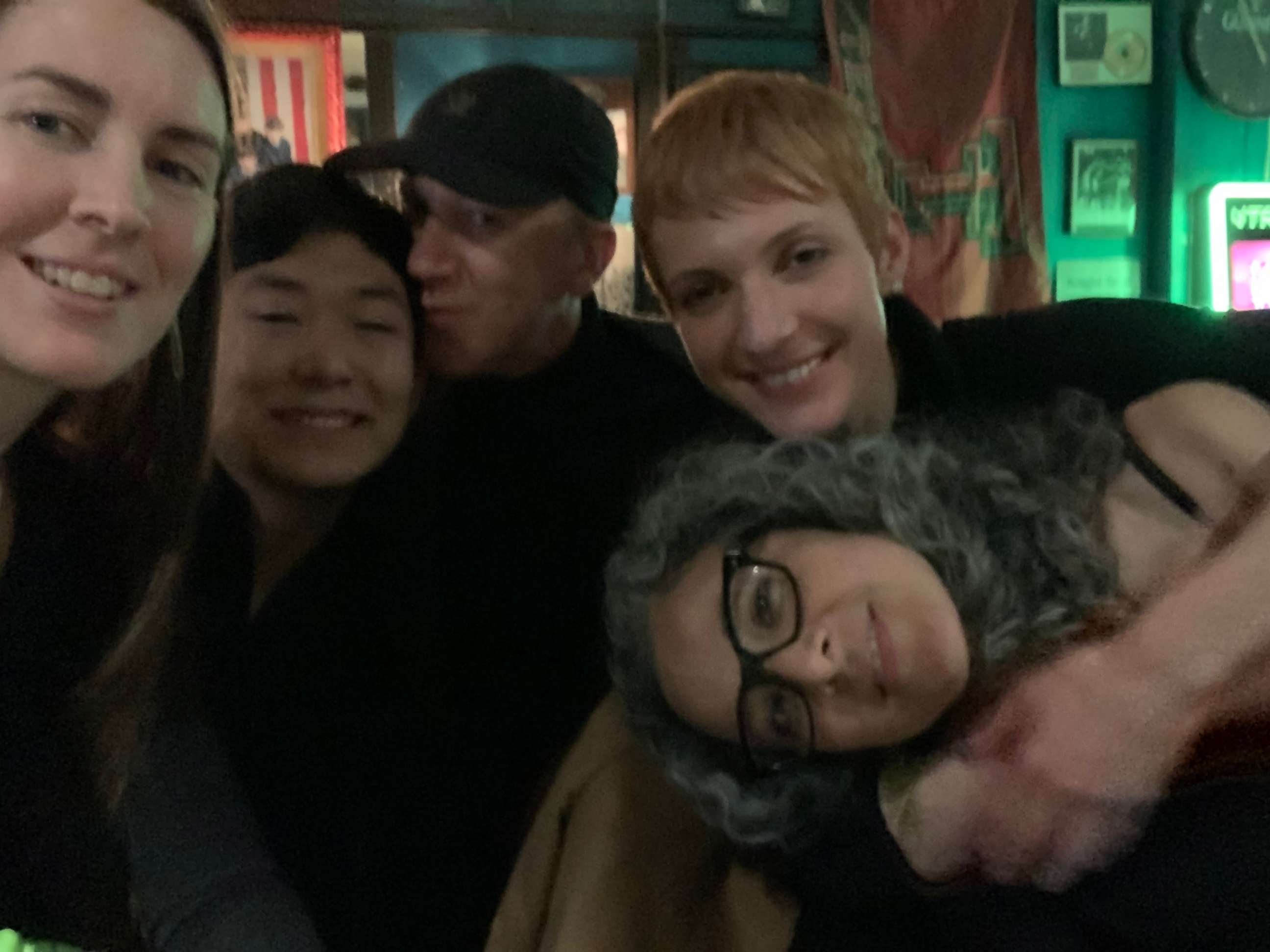
Being a part of the orchestra, which Kulick describes as like family, has been a welcome release from her high stakes job. The last photo on her phone from before her life changed due to the coronavirus pandemic shows members of the orchestra and other friends at a bar in Manhattan, celebrating after one of their orchestra concerts.
As a trumpet player, Kulick became involved in a tradition of playing “Taps” -- a bugle call played at military funerals -- around the 7 p.m. cheers for essential workers each day. As featured on WNBC, the tradition began when her neighbor and former Marine Josh Landress began playing “Taps” from his balcony in memory of those who have died from COVID and Kulick offered to echo him.
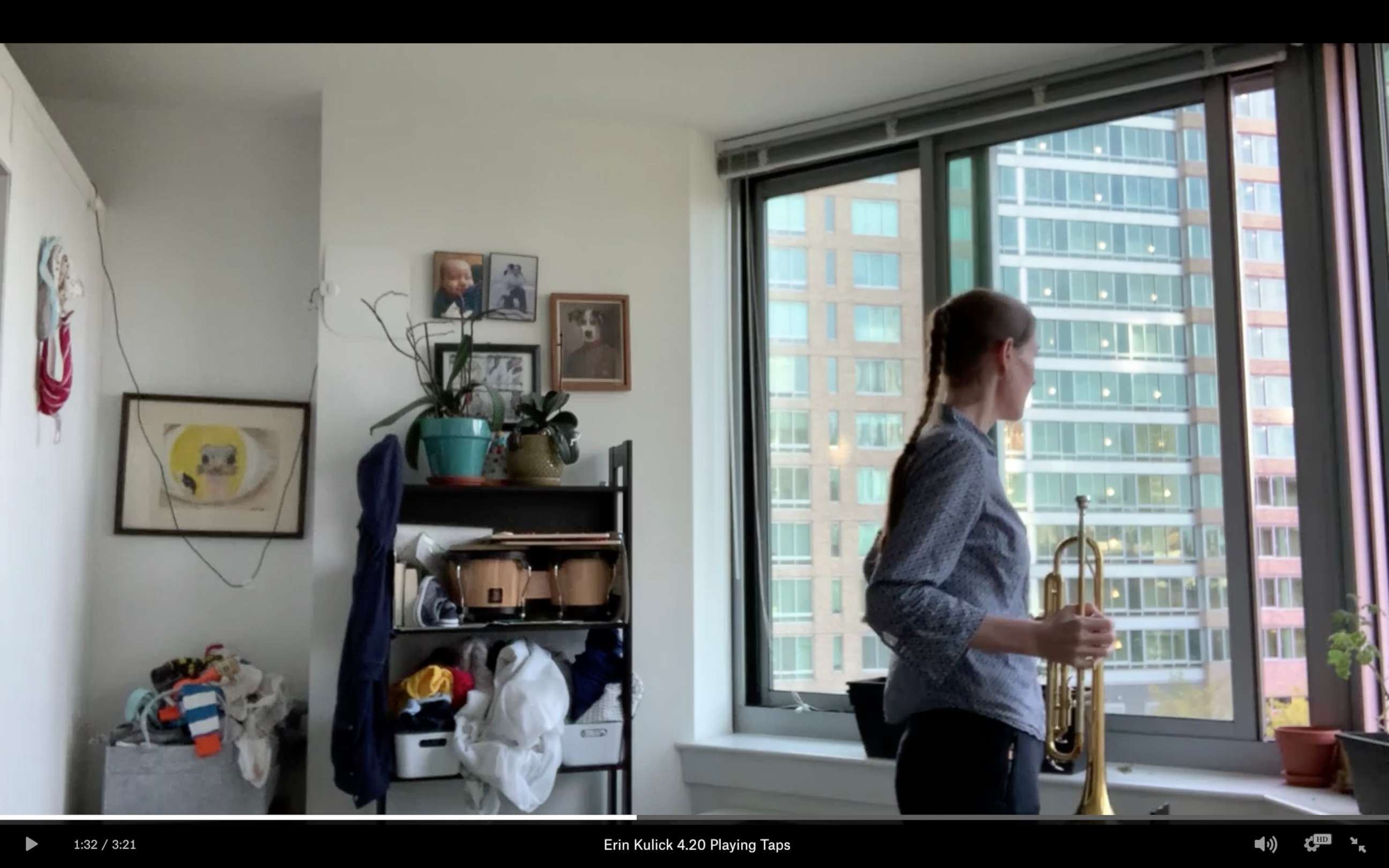
“It means a lot to me to do, particularly because we've lost people,” she said.
Although her shifts end at 7 p.m., Kulick said that in order to honor those that have died, including the family members of her coworkers, she has sprinted home with her mask on in order to make it in time to play the solemn tribute.
“I have a close friend whose mom has been on a ventilator for over a month,” she said. “Following cases and seeing all the people I knew that went on ventilators, except for this friend's mom, died. So she's the only one left. She has to make it.”
